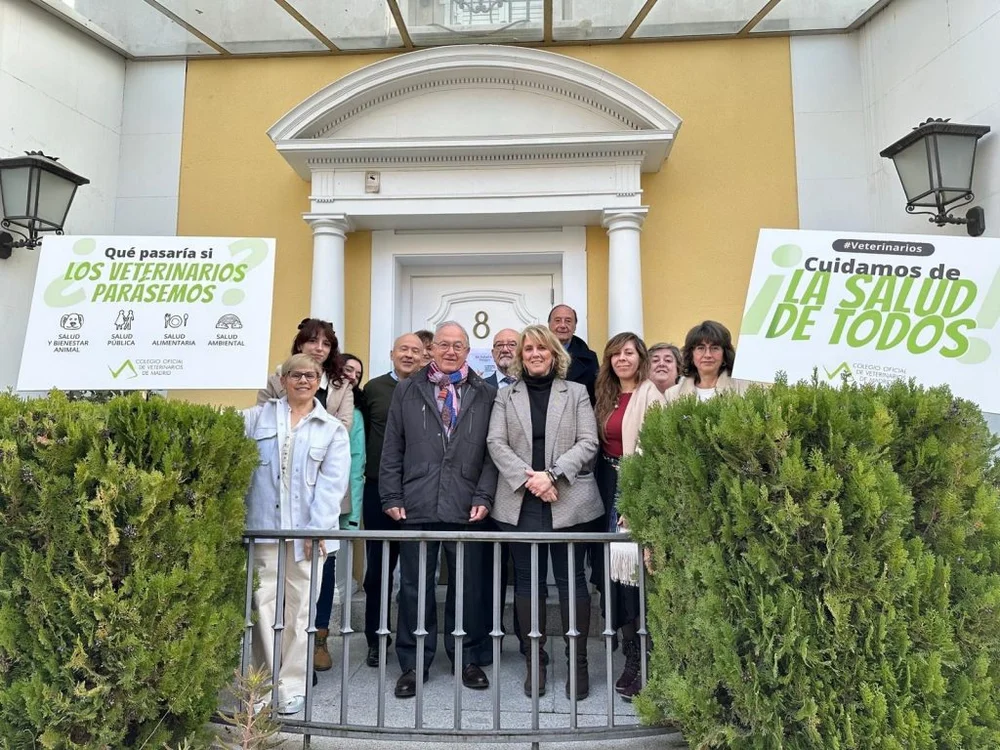Spanish Veterinarians Strike Against New Antibiotic Regulations

In a significant show of dissent, veterinarians across Spain went on strike on Tuesday, February 11, 2025, to protest the newly implemented bureaucratic requirements for prescribing antibiotics. The strike, which took place from 11:00 AM to 12:00 PM, was a unified effort to highlight the challenges and potential risks these new regulations pose to animal health.
Background of the New Regulations
Since January 2, 2024, veterinarians in Spain have been mandated to use Presvet, a digital registration system designed to monitor and reduce the use of antibiotics in animals. This system is part of a broader European directive aimed at combating antibiotic resistance, which must be implemented across all EU member states by 2030.
Concerns and Criticisms
The Madrid Association of Veterinarians and other veterinary associations have strongly criticized the Presvet system. According to Manuel Lázaro, a clinical veterinarian and board member of the Madrid Veterinary Association, "This tool complicates our daily work and limits our ability to intervene quickly. In some cases, it even harms the well-being of our patients."
One of the primary concerns is the restrictive nature of the system. Antibiotics are often registered for specific conditions, preventing veterinarians from prescribing them for other conditions, even if scientific research supports their use. For instance, if a dog has severe infectious diarrhea and the appropriate antibiotic is only registered for respiratory infections, veterinarians cannot prescribe it without triggering an alert in the system.
Call for Flexibility and Direct Medication Dispensing
Veterinarians are advocating for legal amendments that would allow them to dispense antibiotics and essential medications directly from their clinics. This would streamline the treatment process and reduce delays that currently occur when pet owners have to obtain medications from pharmacies. Lázaro emphasized, "We do not want to become pharmacies, but it would be much better if we could provide the full treatment directly."
European Directive and Hasty Implementation
The new regulations are part of a European directive, but Spanish veterinarians question why Spain is enforcing these rules so strictly and urgently. Felipe Vilas, president of the Madrid Veterinary Association, noted, "We do not understand why this is being imposed with such haste when we still have years to implement it properly."
Practical Challenges and Fines
Beyond the administrative burdens, veterinarians face significant practical challenges, including the availability of medications. Many veterinary medicines are not readily available in pharmacies, leading to delays and unnecessary complications for pet owners. Additionally, the Presvet system imposes steep fines for errors, ranging from €600 for minor faults to €1,200,000 for serious violations. These penalties are seen as disproportionate and further exacerbate the stress on veterinarians.
Emergency Situations and Future Discussions
The Organisation of Veterinary Associations (OCV) has emphasized that the regulations should not affect emergency cases, where medical treatment must take precedence over bureaucratic requirements. An emergency meeting was scheduled on February 14 to discuss the situation and potential adjustments to the regulations.
The Strike and Its Implications
The strike on February 11 was a clear call to action, urging the government to reconsider and modify the current regulations. While the immediate impact of the strike is uncertain, it has highlighted the growing dissatisfaction among veterinarians. The coming months will be crucial in determining whether these concerns will lead to policy changes that better balance the need to combat antibiotic resistance with the practical needs of veterinary care.
For expats in Spain with pets, this situation underscores the importance of staying informed about changes in veterinary practices and advocating for policies that ensure the best possible care for their animals. As the debate continues, it remains to be seen how these regulations will evolve to address the concerns of both veterinarians and pet owners.
Related Stories

Veterinarians Denounce Spanish Law for Endangering Animals
Spanish veterinarians criticize the Animal Welfare Law for failing to protect hunting dogs, exposing them to abuse and neglect, with protests planned to demand change.

How to Prevent Your Dog from Biting or Destroying Furniture: Essential Tips for Expats in Spain
Expats in Spain can prevent their dogs from biting or destroying furniture with training, exercise, and understanding their behavior.

Municipal Council to Subsidize Farmers for Using Mastiff Dogs to Protect Against Wolf Attacks in Saja-Besaya
Saja-Besaya council to subsidize farmers for using mastiff dogs against wolf attacks, aiming to protect livestock and balance ecosystem needs.

Madrid Zoo Bids Farewell to Beloved Dolphins
Madrid Zoo mourns the loss of its cherished dolphins, marking a significant moment for both the zoo and its visitors, as they remember the animals' legacy and impact on marine conservation.

Concerns in Valdeolea, Cantabria: Repeated Wolf Attacks on Livestock Now Include a Bear
Valdeolea, Cantabria faces a growing wildlife challenge as wolf attacks on livestock escalate, now joined by a bear, highlighting the struggle between conservation and farming.